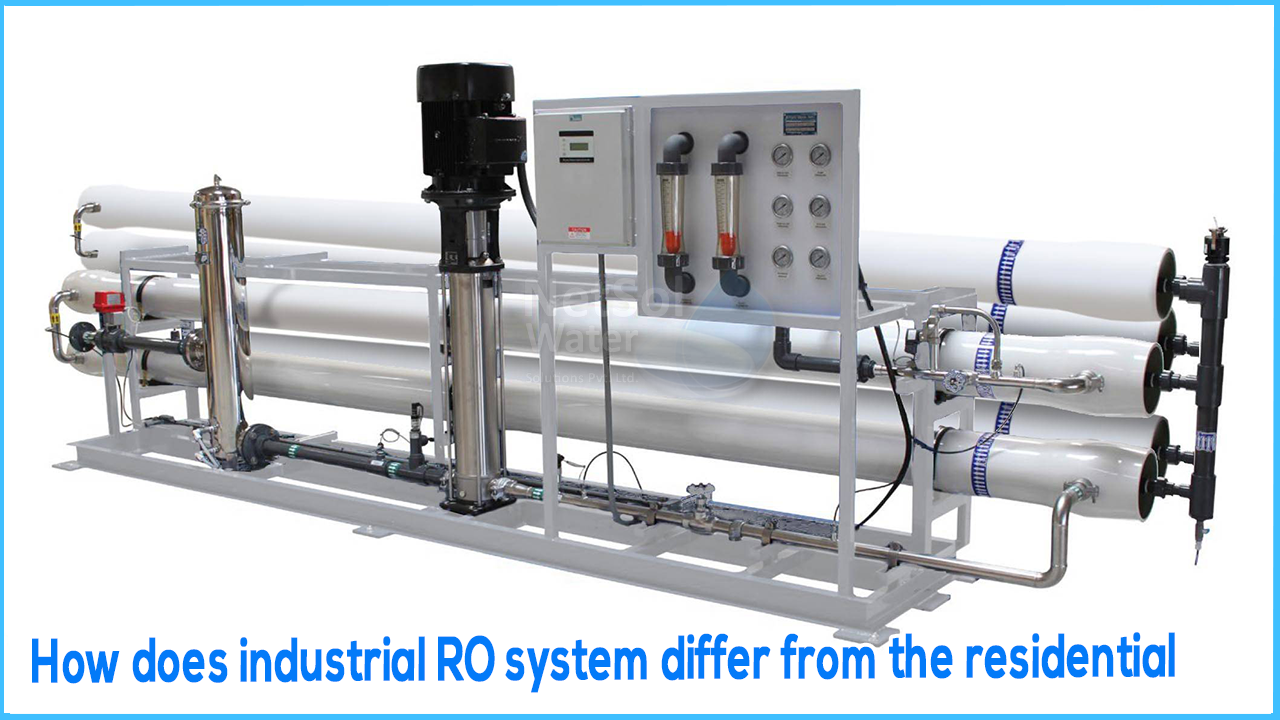The reverse osmosis technique is the most common method used in a wide range of sizes and sectors that require considerable water treatment as a part of their operations. Over the last few years, this technique has evolved to meet the needs of residential, commercial, and industrial clients. Even though the technique is the same, it varies depending on the scale.
WORKING OF INDUSTRIAL RO SYSTEM
Industrial RO Plant Stages:
- ~ Three, four, or five stages of filtering are used to produce industrial RO systems.
- ~ A sediment filter and a carbon filter are included in every RO Water Plant, in addition to the RO membrane. Pre-filters and post-filters are the two types of filters.
- ~ Each type of system includes one or more of the following filters-
- ~ Sediment Filter: It filters out minute particles in water such as dirt, dust, and rust.
- ~ Carbon Filter: It filters out volatile organic compounds (VOCs), chlorine, and other pollutants that give water a bad taste or odor.
- ~ Membrane with a semi-permeable structure that removes up to 98 percent of total dissolved solids (TDS)
Process:
1.Water goes through pre-filtration before entering the Reverse Osmosis Process. To remove silt and Cl that could clog or harm the artificial language membrane, pre-filtration usually comprises a carbon filter and a sediment filter.
2 The water next passes over the RO membrane, where dissolved particles, even those too small to view with a microscope, are eliminated.
3 Water goes to the tank after filtering and is controlled there until it is needed. An Industrial RO System filters water until the tank is full, at which point it switches off.
4 When you turn on your drinkable regulator, water from the tank passes through another post-filter to make it drinkable before reaching your regulator.
WORKING OF RESIDENTIAL RO SYSTEM
The reverse osmosis filtering system removes contaminants that aren't visible to the naked eye by forcing water through a special fine membrane. Because of their size and shape, these membranes filter out pollutants. This means particles larger than water molecules can't get past the filter. Pesticides, viruses, germs, ions, and bacteria, among other dangerous compounds and toxins, are blocked by the membrane. In fact, unlike other purification technologies, it can eliminate pollutants dissolved in water.
Here's how a typical industrial reverse osmosis differs from household reverse osmosis:
- 1. WATER PROFILE
For industrial and home use, several types of water with certain minerals are required. Whereas a pharmaceutical plant may require an excess of one mineral in its water for the manufacturing of its medicine, a typical domestic RO purifies water to meet the needs of a human body.
- 2. CAPACITY
The average capacity of a residential RO system, comprising the full house water treatment system, is roughly 100 gallons per day. An industrial RO system, on the other hand, may treat up to 100,000 gallons of water depending on the factory's needs.
- 3. WATER SOFTENERS
The tap water delivered to our home has already been treated to ensure that it is safe to use for daily tasks. After adding a few water softeners to remove any chemicals that might slip through the RO membrane, this water can be consumed. The water accessible for treatment in factories comes directly from the sources and has thus never been treated. As a result of the differences in sources, the systems necessitate varying types and quantities of water softeners in order to make the water appropriate for RO treatment.
- 4. LIMITATIONS
Although domestic RO systems can filter water for specific impurities, they are not recommended for use with any source of water. Industrial RO systems, on the other hand, are designed to take seawater and desalinate it, so they can handle any water profile.



